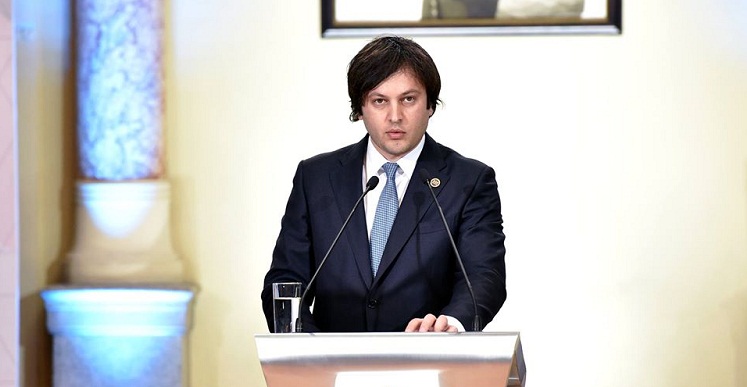OSCE/ODIHR releases conclusion on Georgian opposition’s election bill, ruling party says opposition is ‘incompetent’

Ruling Georgian Dream party MP Irakli Kobakhidze says that the opposition bill should not have been sent to the OSCE. Photo: Irakli Kobakhidze’s Facebook page.
The OSCE/ODIHR has released its conclusion on the Georgian opposition’s election bill which proposes a proportional electoral system for the 2020 parliamentary elections, saying that it is in the competence of the national courts, and not theirs, to decide whether a bill is in line with the state constitution or not.
The choice of an electoral system is the sovereign decision of the state, so long as the chosen electoral system is consistent with the state’s obligations under international law. International standards do not prescribe the choice of electoral systems. The choice of an electoral system, whether it be majoritarian, proportional, hybrid or an alternative system, should be subject to a broad inclusive debate which allows relevant stakeholders to bring forward positive and negative effects of the reform. Any proposed changes have to be carefully considered, including their adoption by a large consensus among political parties,” the conclusion reads.
The opposition, which requested Georgian Public Defender Nino Lomjaria send the bill to OSCE/ODIHR for them to say whether it was in line with the constitution or not, says that the conclusion does not state that the bill is unconstitutional.
 The opposition says they have plans how to win the 2020 elections. Photo: Grigol Vashadze's press office.
The opposition says they have plans how to win the 2020 elections. Photo: Grigol Vashadze's press office.
If the bill was against the Georgian constitution OSCE/ODIHR would have stated this,” leader of the United National Movement opposition Grigol Vashadze said.
Leader of the Lelo for Georgia political movement Badri Japaridze said that OSCE/ODIHR conclusions ‘are of a technical nature and the issue of whether the bill was in line with the constitution or not was not raised at all as the bill is in line with the constitution.’
Ruling party MP Irakli Kobakhidze has stated that the opposition is a “liar and incompetent.”
OSCE/ODIHR directly says that it is beyond their competence to say whether a bill is in line with the constitution or not… The opposition is incompetent, they do not know where to send a bill for assessments… The conclusion also says that all the election models, including the mixed electoral model we have now, are legitimate and it is up to the country to decide which model to choose,” Kobakhidze said, adding that the opposition created an awkward situation for the Georgian public defender through sending an inappropriate bill to OSCE for discussion.
 Georgian parliament rejected an early transition to a fully proportional electoral system on November 14,2019. Photo: parliament of Georgia press office.
Georgian parliament rejected an early transition to a fully proportional electoral system on November 14,2019. Photo: parliament of Georgia press office.
The opposition offered an adapted version of the German electoral model for the 2020 parliamentary elections, which distributes seats in the legislative body per the votes received in proportional voting, after the Georgian parliament rejected the ruling party proposed election bill on an early transition to a fully proportional electoral system starting from 2020 instead of scheduled 2024.
The opposition says that the ruling party ‘deliberately rejected’ the bill and took to the streets in November 2019.
In December 2019 the ruling party offered a 100/50 model to the opposition for 2020 elections, which distributes 100 seats proportionally and 50 seats based on majoritarian race in the 150-member parliament.
The opposition says that the model is ‘unacceptable.’ However, the ruling party says that if the opposition dismisses the ‘very rational offer’ the 2020 elections will be held per the existing, mixed electoral system - with 73 MPs elected in single-mandate constituencies [majoritarian elections] and remaining 77 based on proportional, party-list system.
 Tweet
Tweet  Share
Share